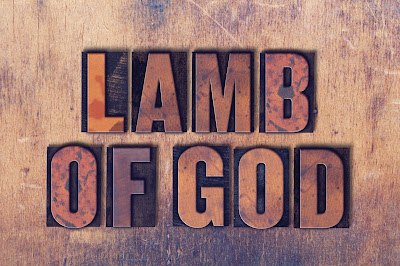For I delivered to you as of first importance what I also received, that Christ died for our sins according to the Scriptures
(1 Corinthians 15:3)
The truth of the gospel includes this important phrase: Christ died for our sins.
You've probably heard it before. Many times.
Sometimes familiarity leads to a diminished sense of importance. The more you hear about something the more ordinary it may seem. Common. Ho-hum. Boring.
But this truth is anything but common.
Another difficulty arises with this truth. Beyond being common. It may happen in your ears without you even realizing it.
When the truth is declared that Christ died for our sins, you may think you hear the truth. But what you really hear is a diminished version. A partial truth.
Instead of hearing that Christ died for our sins you may hear a slightly different version of this truth. You might hear this: Jesus died for your sins.
Do you see the difference? You should.
These statements are similar. Both may very well be true.
But they aren't the same.
Not even close.
Take a moment to really think about this. It's important. According to Paul, it is of first importance.
In order to see the difference we need to take a moment to discuss sin. Often when I witness, I ask the person I am talking to what they think the greatest sin is. I get a lot of different answers.
Murder. Rape. Theft. Racism. Hatred.
A lot of different answers. My follow up question usually gets the same answer. When I ask, "Do you know what Jesus said the greatest commandment was?" The answer is almost always, "No."
Most people agree that the greatest sin would be violating the greatest commandment. However, most people don't know the greatest commandment. Therefore, they don't know the greatest sin.
And He said to him, "'YOU SHALL LOVE THE LORD YOUR GOD WITH ALL YOUR HEART, AND WITH ALL YOUR SOUL, AND WITH ALL YOUR MIND.' This is the great and foremost commandment.All. 100%.
(Matthew 22:37-38)
It's pretty easy to give 1% of your heart, soul, mind, or strength away to something lesser than God. When we do so, we are in violation of the greatest commandment of the living God.
The God who spoke the sun into existence. Who raised up the mountains. Who establishes the boundaries for the seas. The God who gives us air to breathe and lungs to breathe it.
Since this is true, we should be able to admit that for our entire life we have been violating God's greatest commandment. We add to this serious violation countless other violations and transgressions.
My individual sins are more than I can calculate. More than the number of hairs on my head. More than the stars in the sky. More than the grains of sand on the seashore.
That's just me.
If I allow the individualistic winds of our age to influence me and I hear the gospel truth as Christ died for my sins, then I have reason to glory in my God. But not as much reason as if I hear the truth as it is actually stated.
The actual statement is that Christ died for our sins. All of ours. The sins of the whole church.
Every person who has ever been redeemed. Every person who will ever be redeemed.
Christ has died for all of our sins.
Spectacular. Christ dying for our is infinitely greater than Christ dying for my sins.
In Revelation, when we get a glimpse of the great multitude from every tribe, tongue, nation, and people we are told that the group is so large no one could count it.
After these things I looked, and behold, a great multitude which no one could count, from every nation and all tribes and peoples and tongues, standing before the throne and before the Lamb, clothed in white robes, and palm branches were in their hands; and they cry out with a loud voice, saying, "Salvation to our God who sits on the throne, and to the Lamb."
(Revelation 7:9-10)
Do you see the difference in the weight of the statement that Christ died for your sins and the truth that Christ died for our sins?
When I think that Christ died for me, it gives me reason to praise Him. The weight of the true glory that Christ deserves is found in the larger statement that Christ died for our sins.
This truth results in even those who are not redeemed and for beings for whom Christ did not die praising Him!
In Revelation 4, the Apostle John sees a glorious vision of the Father being praised in heaven. In the next chapter, the praise and honor changes focus. It is offered to the Lamb of God. It is offered to Him because of His great worth. The Lamb of God is the only one who could die for our sins.
And they sang a new song, saying, "Worthy are You to take the book and to break its seals; for You were slain, and purchased for God with Your blood men from every tribe and tongue and people and nation. You have made them to be a kingdom and priests to our God; and they will reign upon the earth."
(Revelation 5:9-10)
This praise doesn't just come from the four living creatures. It results in the holy angels and the elders also praising Him (Revelation 5:11-12). But this isn't enough praise.
Not for Jesus. Not for the Lamb of God who was slain and who lives forevermore.
Every created thing gets in on the praise.
And every created thing which is in heaven and on the earth and under the earth and on the sea, and all things in them, I heard saying, "To Him who sits on the throne, and to the Lamb, be blessing and honor and glory and dominion forever and ever."
(Revelation 5:13)
Every created thing. In heaven and on earth. And under the earth. And on the sea. Everything in them. Can't help themselves from declaring blessing, honor, glory, and dominion belong to the Father and to the Lamb.
All because Christ died for our sins.
It's a big deal.




Comments